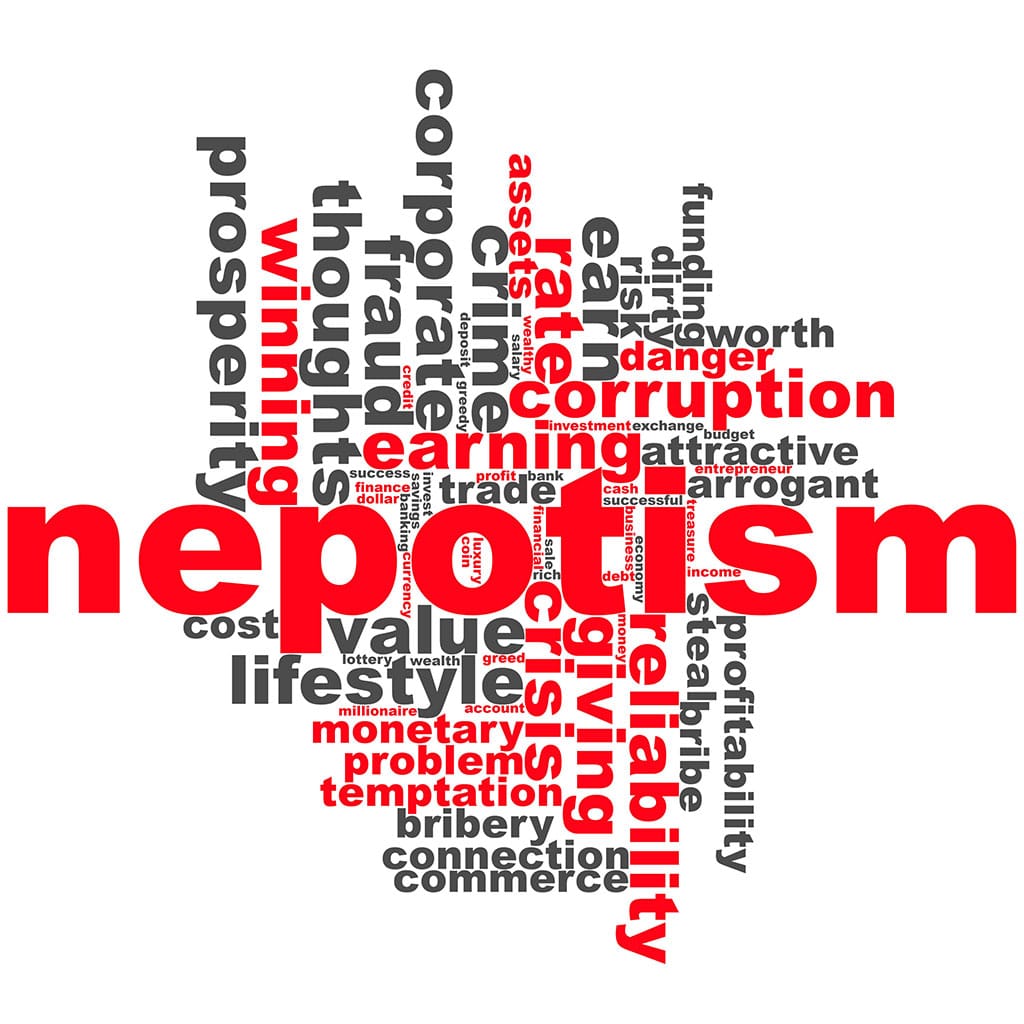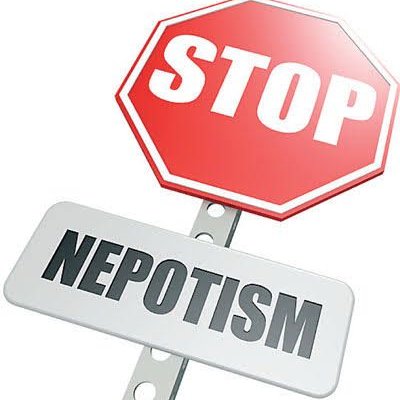To avoid nepotism, a collective leadership strategy requires to ensure that employee hires, and promotions. And also desirable projects are spread equally within the organization. Nepotism can wreak havoc on a company’s culture, and it often places workers in positions for which they are unqualified. When there are weak policies in place and leadership where education is not proper. Then sustainable development will emerge, prevents hiring of eligible applicant’s without cause. Fair recruiting and selection practices are critical to your company’s long-term success and diverse culture creation. Whether you operate a small family business or a large corporation.
Table of Contents
What exactly is nepotism?
In its most basic form, nepotism in the workplace refers to the practice of preferring family and friends over others for job opportunities. Hiring, promotions, desired project assignments, preferred shifts, and any other openly accessible opportunity in the workplace are examples of these. Although nepotism is not illegal, it is one of the most damaging behaviors that managers can instill in their workplaces.
This practice is not only inequitable in terms of a job promotion, but it also restricts the employer’s options. Nepotism hinders a company’s ability to form authentic teams. Also to attract top talent, foster organizational teamwork, share expertise, and retain employees in general.

Nepotism is a corrosive act that often puts the wrong people in positions of leadership or subject-matter expertise. It also prevents more skilled workers or applicants from furthering their careers and working together to create the best programs, goods, and policies. As a result, the quality of leadership and key positions within the organization deteriorates, as top talent often abandons a business when they believe there is no hope for potential opportunities.
How do you stop nepotism in the workplace?
The only way to show all your workers that nepotism is not a part of the business or its brand is to set clear goals through policy, practice, and culture. Here are some tips to help you spot nepotism and prevent it altogether in your business.
1. Establish an anti-nepotism program that is proactive.
This should be part of the employee handbook and leadership preparation. Strong anti-nepotism policies make it illegal for relatives to work in the same department or organization, or for one family member to report to another.
2. Keep thorough job details on hand.
The work description is the blueprint that establishes these other protections for performance. One of the best ways to keep team expectations grounded, leadership in check, and a transparent, communicative forum for everyone to see is to keep an accurate and concise job description for each position. Employees should have the expertise, experience, and qualities required for any given role within the organization, according to job descriptions.
3. Provide manager (or leadership) growth.
Leadership preparation, more than any other move, clearly answers questions about nepotism. A simple concept of favoritism, a summary of what it looks like in the workplace, and a declaration that all supervisors are responsible for not only stopping the practice but also speaking up when they notice it should all be included in a direct callout of the practice.

4. Create a recruiting and promotion culture that is open and transparent.
As the mechanism for hiring new workers and promoting existing employees is transparent, it increases the likelihood of organizational harmony and confidence. It’s critical that the recruiting and promotion processes are transparent, as this will raise questions and anxiety about real or perceived favoritism.
5. Create an approval process for hires and promotions that involves HR or senior management.
Before you or your superiors make any final recruiting or promotion-related decisions, consult with the human resources department to strengthen the phalanx against nepotism. Hopefully, the HR department has the independence and power to oversee these personnel decisions. For some vacancies and promotions, senior management approval is an important phase in the recruiting process.
Nepotism comes in a variety of forms.
There are two forms of nepotism in general: mutual nepotism and privilege nepotism. While they are both unfair, they serve different roles and have slightly different motivations.
According to Indeed, reciprocal nepotism occurs when a family member takes a role for financial reasons, loyalty concerns, a desire for a stronger family relationship, or cultural norms (i.e., nepotism has been allowed previously).
When someone feels entitled to a certain position or promotion because a family member works at a business, this is known as entitlement nepotism. This is especially common in family-owned businesses.
In the workplace, examples of sustainable development (or favoritism)
Many people actually refer to “favoritism” as a term for more subtle acts of nepotism in the workplace. These situations can also arise when there isn’t any nepotism in the family. Poor management styles and behaviors of someone in the organization may have the same negative consequences. The following are some examples:
- Workload distribution is essential. The workload is not distributed evenly by the boss or manager; some workers have heavier or less favorable workloads than others.
- Channels of critical feedback Only a few workers have access to sensitive work-related information.
- Rapid career advancement. There is a practice of transferring an undeserving employee across each level of the company, similar to promotion. This gives the impression that they’ve “made their way up,” but it’s really only a shortcut to their desired position within the business.
- The closeness between managers and employees. The boss spends his time with the same people or individuals every day and does not interact with others. While this isn’t actually against the rules in most situations, it sends a message to the rest of the team that they aren’t treated equally.
- Neglected bad habits When one employee is consistently late to work or makes errors that are not corrected, others are reprimanded.
- Choosing a project Some workers have a say in which project or job they are assigned to, while others do not. When it comes to attractive work shifts or hours, this is very popular.
The impact of nepotism in the workplace:
Other team members may become enraged, frustrated, or dissatisfied as a result of nepotism, or even perceived favoritism of a family member or another employee. Employee morale would suffer as a result. Employees may be less motivated to fulfill their tasks faithfully and to the best of their ability if they believe nepotism is undermining their road to advancement – or any potential opportunity.
Although nepotism can have a variety of negative consequences in the workplace, the following are some of the most serious:
- Discrimination lawsuits arise as a result. Although nepotism is generally not illegal in and of itself, it may lead to illegal actions or outcomes. If you only recruit from a small pool, for example, you can inevitably exclude eligible applicants who may have grounds to file a discrimination lawsuit.
- It depletes the company’s internal talent pool. When you recruit people who fall into your preferred class on a regular basis, your pool of capital is reduced (i.e., truly qualified candidates or employees). By doing so, you end up jeopardizing the company’s future by losing top talent, destroying the atmosphere, and eroding workers’ confidence in the company’s leadership.
- It has a major impact on talent retention. According to research, 87 percent of millennials are searching for opportunities for growth and advancement in their careers. As a result, even sporadic nepotism is a surefire way to lose these workers. Your best employees will inevitably leave your company in search of opportunities for promotion and skill growth.
- It has a negative impact on the company’s culture. This should go without saying, but businesses that engage in nepotism will never be able to create a diverse and safe work environment. When management promotes those workers unfairly while ignoring more deserving employees, it is impossible to create confidence in your business.
- It reduces efficiency, innovation, and job quality. In the end, nepotism or any other kind of unfair favoritism would put a stop to a company’s high productivity, rich ingenuity, and high-quality production. The findings will ultimately reveal whether leadership and other important roles in the company are filled by someone other than the best talent.